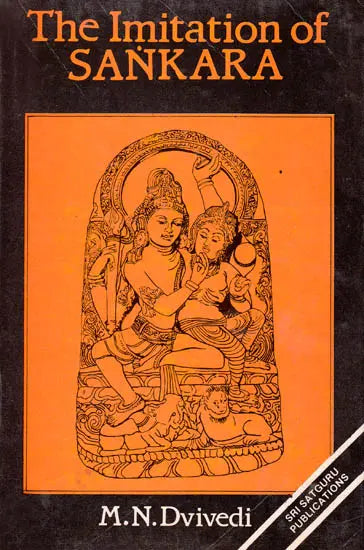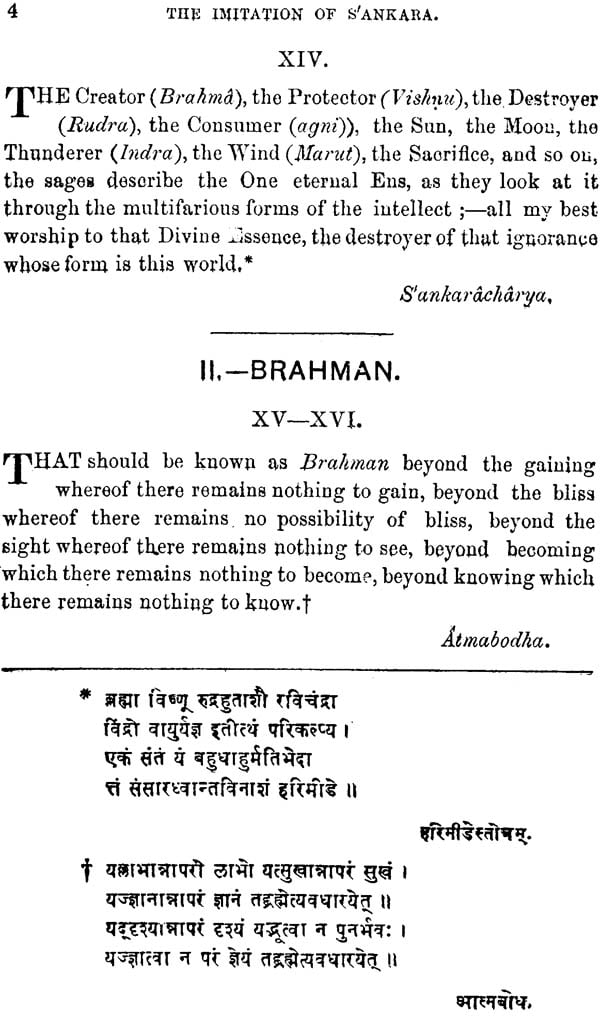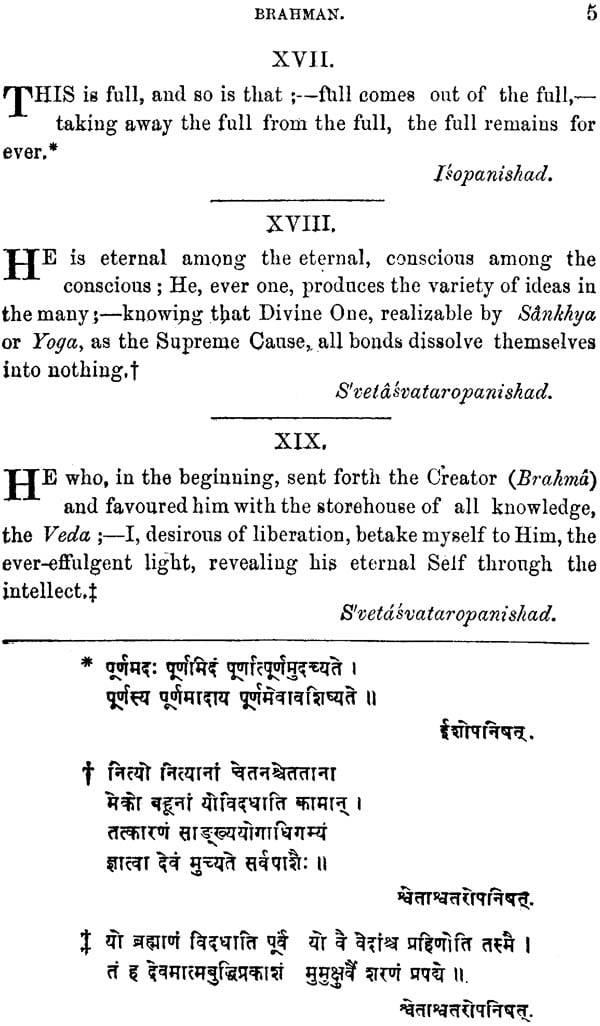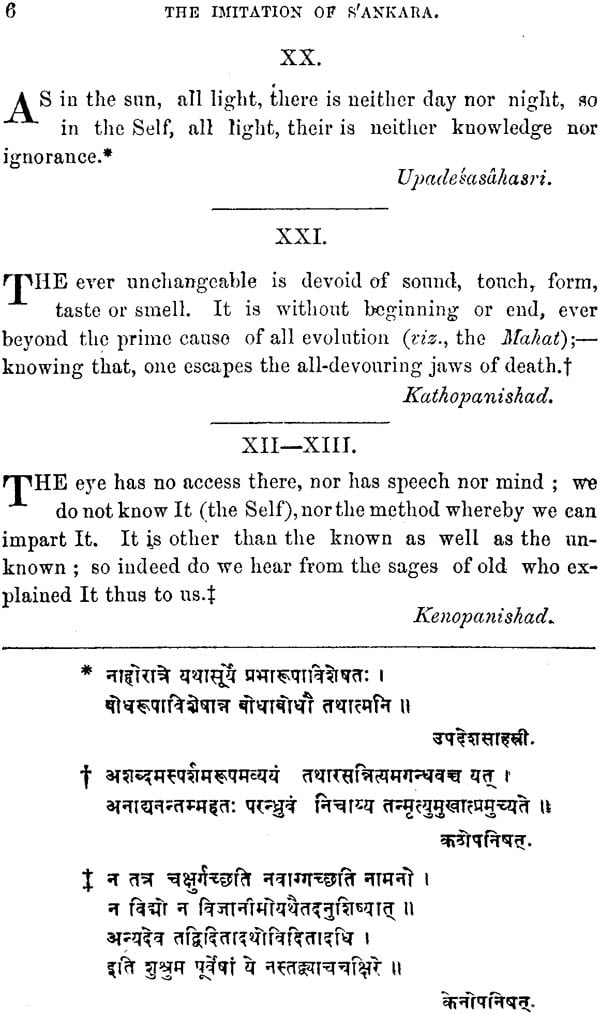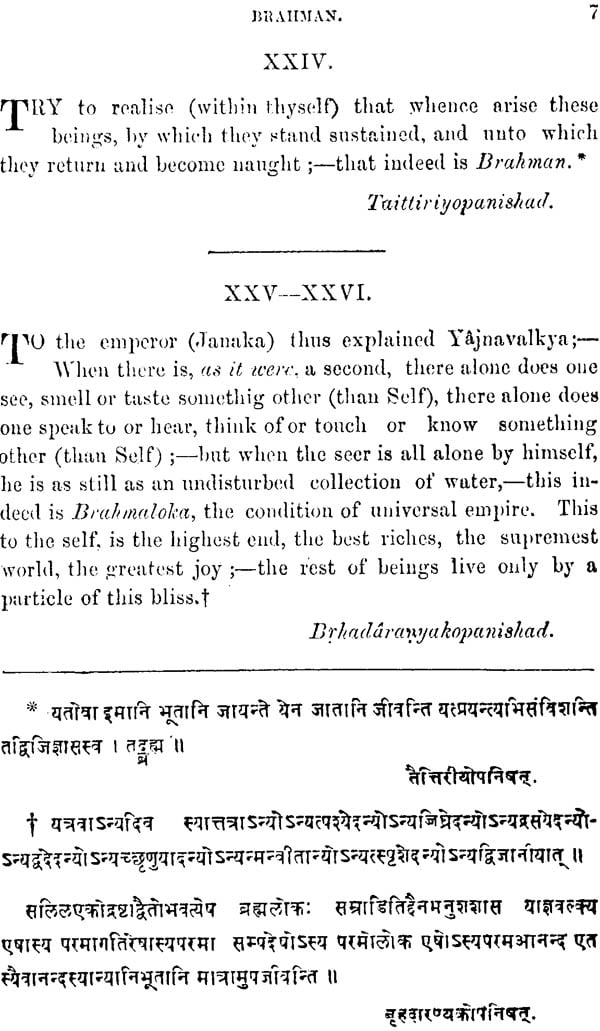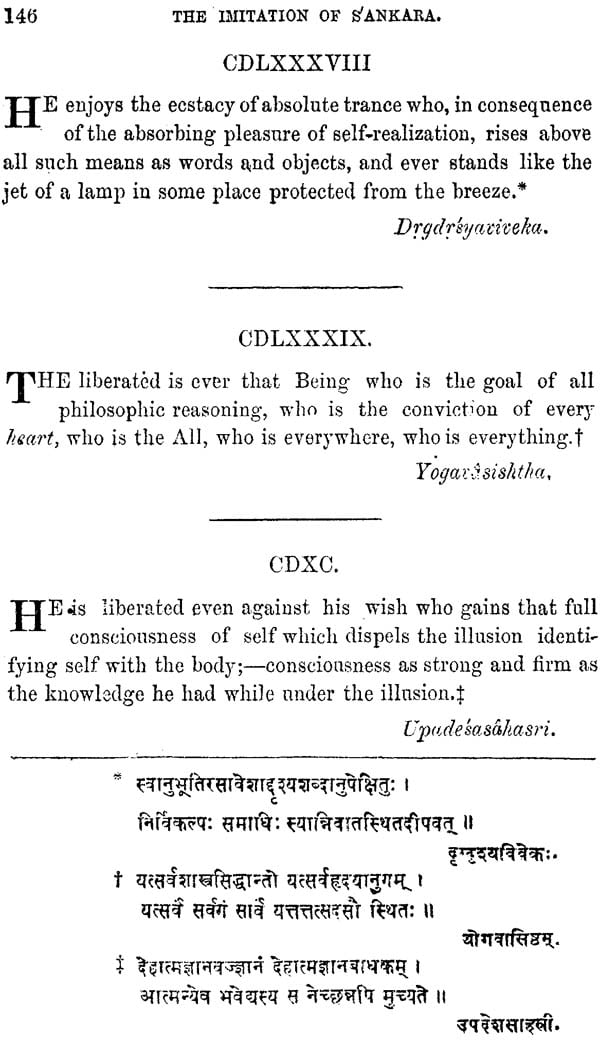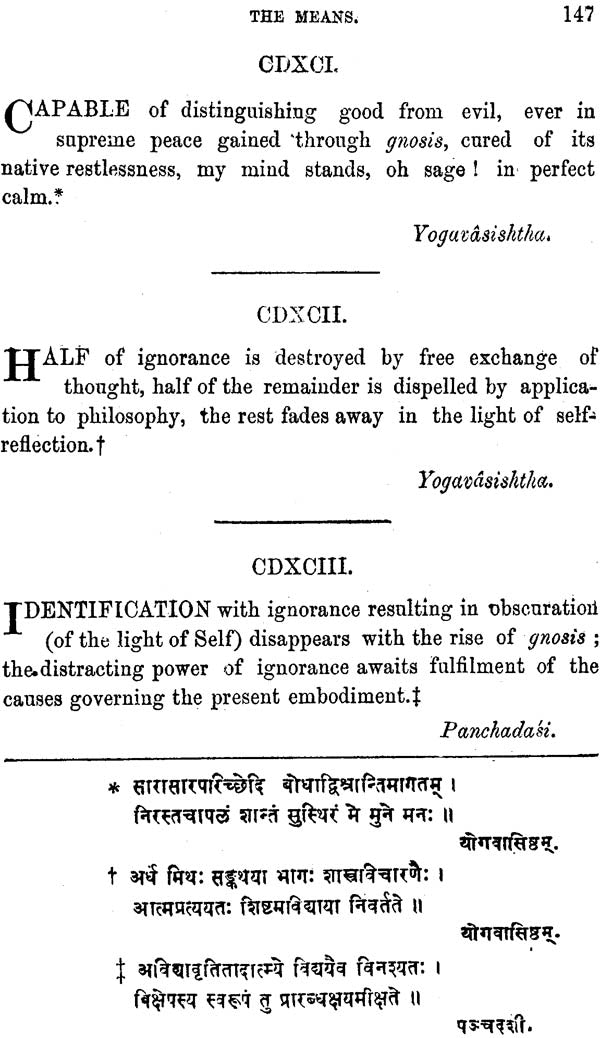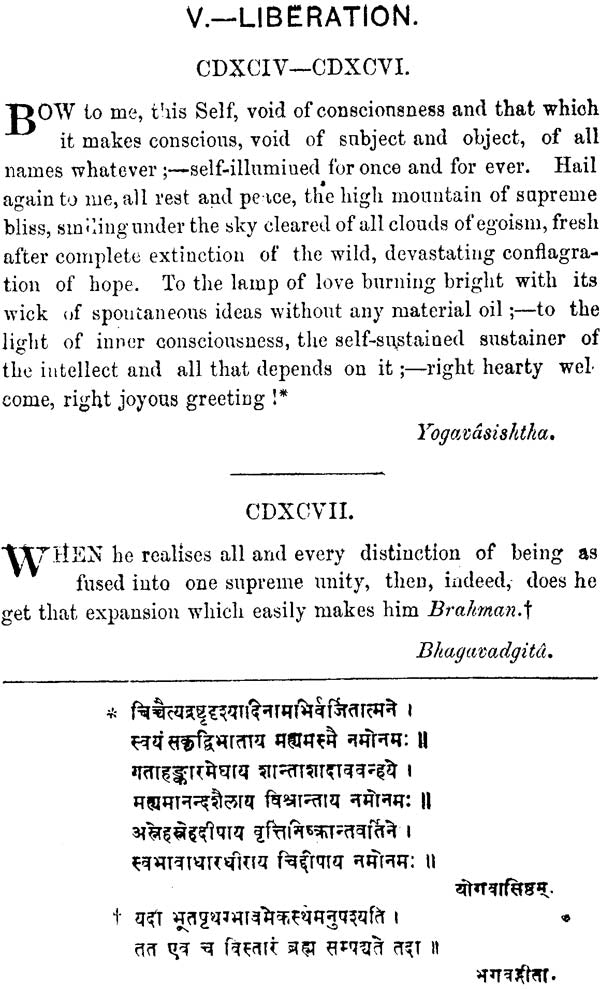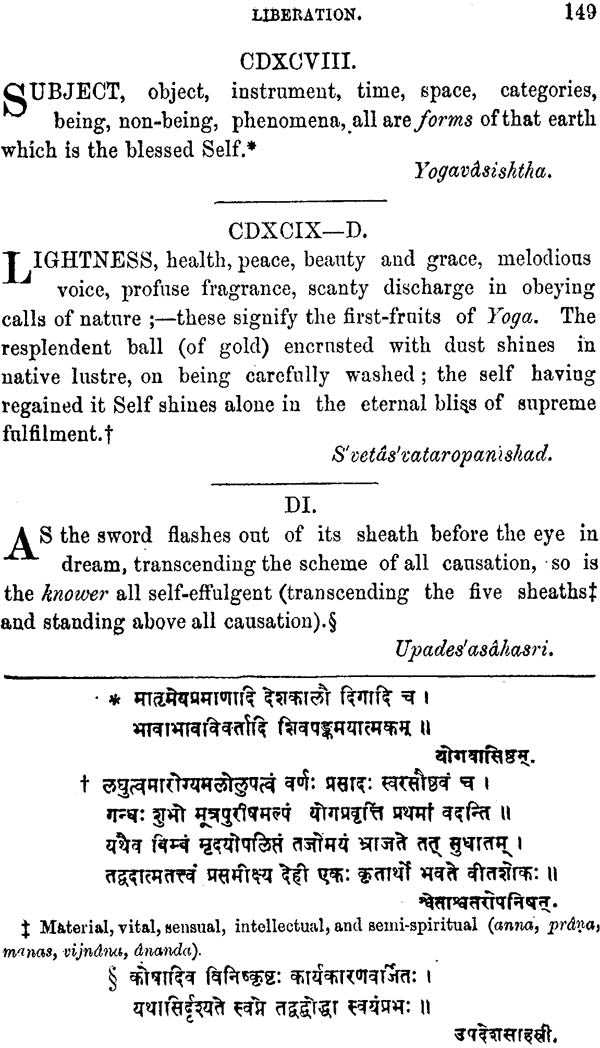The Imitation of Sankara Being (A Collection of Several Texts Bearing on the Advaita)
The Imitation of Sankara Being (A Collection of Several Texts Bearing on the Advaita) is backordered and will ship as soon as it is back in stock.
Couldn't load pickup availability
Genuine Products Guarantee
Genuine Products Guarantee
We guarantee 100% genuine products, and if proven otherwise, we will compensate you with 10 times the product's cost.
Delivery and Shipping
Delivery and Shipping
Products are generally ready for dispatch within 1 day and typically reach you in 3 to 5 days.
Book Details:
-
Publisher: Sri Satguru Publications
-
Author: M.N. Dvivedi
-
Language: Sanskrit and English Translation
-
Pages: 256
-
Cover: Hardcover
-
Dimensions: 22.5 cm x 14.5 cm
-
Weight: 420 gm
-
Edition: 1988
-
ISBN: 9788170300274
About the Book:
The collection presented in this book, though not solely from the works of Sankara, encompasses a vast range of works connected to his philosophy and that of his followers. Divided into sections and sub-sections, this collection aims to cover the central topics of the Absolute Philosophy. The texts from the Upanishads and other Vedantic writings are included, with careful translations and a detailed alphabetical index, which provides readers easy access to essential concepts and ideas. The book's intention is to make the profound philosophy of the Upanishads more accessible and to guide the reader through the core aspects of Sankara's teachings.
In the introduction, the author reflects on the profound influence of Vedanta, quoting German philosopher Schopenhauer, who found solace in the teachings of the Upanishads. The book aims to present the philosophy in a simple and relatable manner, similar to the works of Thomas à Kempis and Edward Bowdon, while still staying true to the complexity and depth of the subject.
Though Sankara’s teachings have been translated and analyzed by numerous scholars, the author offers his own fresh translations of selected texts, often referring to Sankara’s commentaries. The text is organized to ensure that the reader can trace significant references and explanations related to Vedanta and the Absolute Philosophy easily.
The life of Sankara, though shrouded in some uncertainty regarding his exact historical timeline, is briefly discussed. Born in Malabar, Sankara is regarded as an incarnation of Lord Shiva and is renowned for renouncing worldly life at a young age to become a sannyasin. His philosophy addressed the national and spiritual concerns of his time, laying the foundation for the Vedantic tradition and founding four Mathas across India. Sankara's literary works, which include commentaries and poetry, have had a lasting impact on Indian thought and continue to inspire followers around the world.
This book, rich in philosophical depth and historical context, serves as a guide to understanding the essence of Vedanta and its transformative influence.

